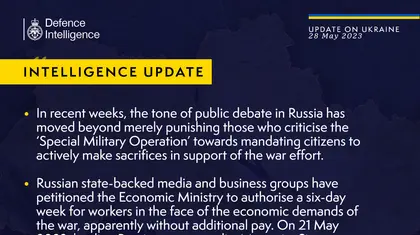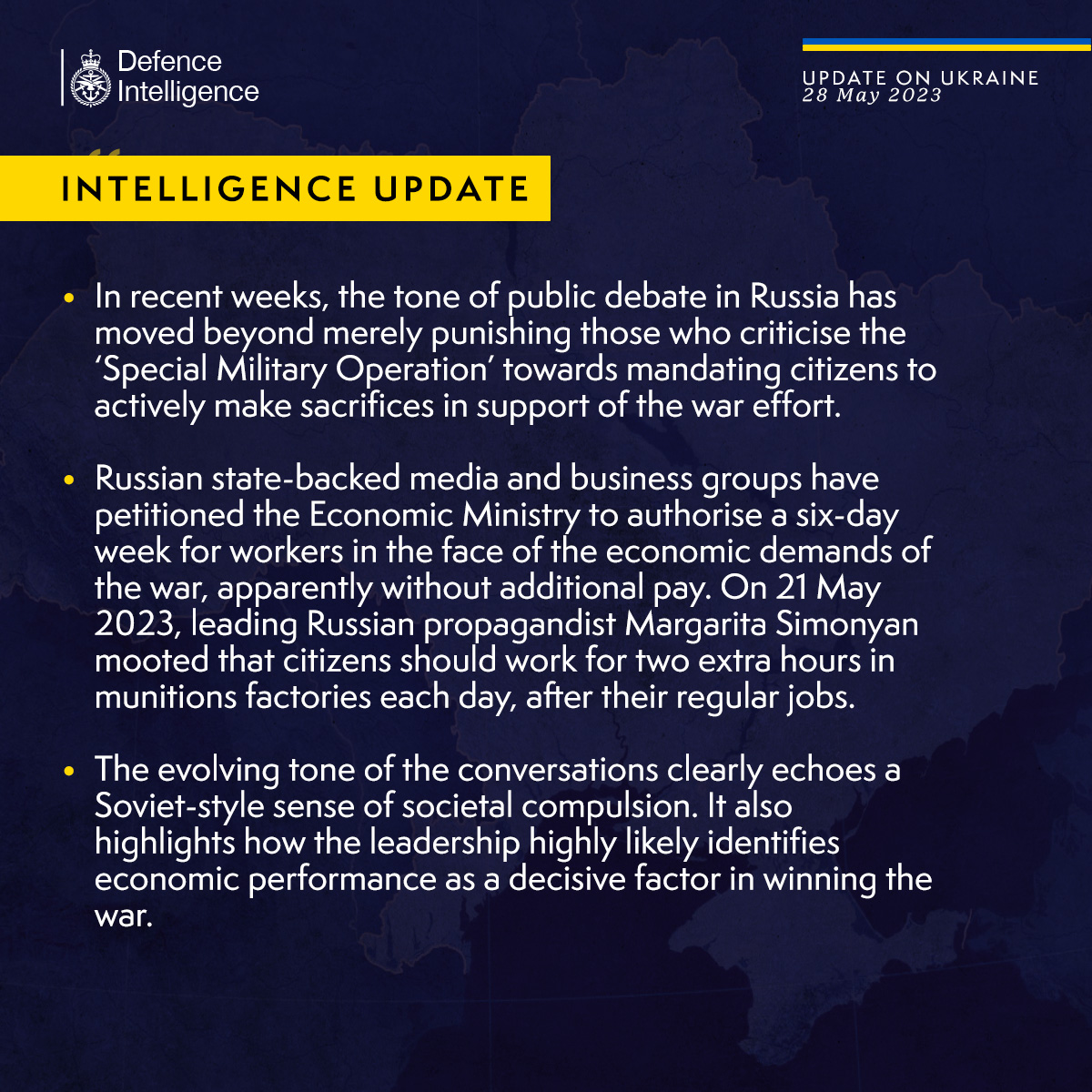- In recent weeks, the tone of public debate in Russia has moved beyond merely punishing those who criticise the 'Special Military Operation' towards mandating citizens to actively make sacrifices in support of the war effort.
- Russian state-backed media and business groups have petitioned the Economic Ministry to authorise a six-day week for workers in the face of the economic demands of the war, apparently without additional pay. On 21 May 2023, leading Russian propagandist Margarita Simonyan mooted that citizens should work for two extra hours in munitions factories each day, after their regular jobs.
- The evolving tone of the conversations clearly echoes a Soviet-style sense of societal compulsion. It also highlights how the leadership highly likely identifies economic performance as a decisive factor in winning the war.
To suggest a correction or clarification, write to us here
You can also highlight the text and press Ctrl + Enter
You can also highlight the text and press Ctrl + Enter








